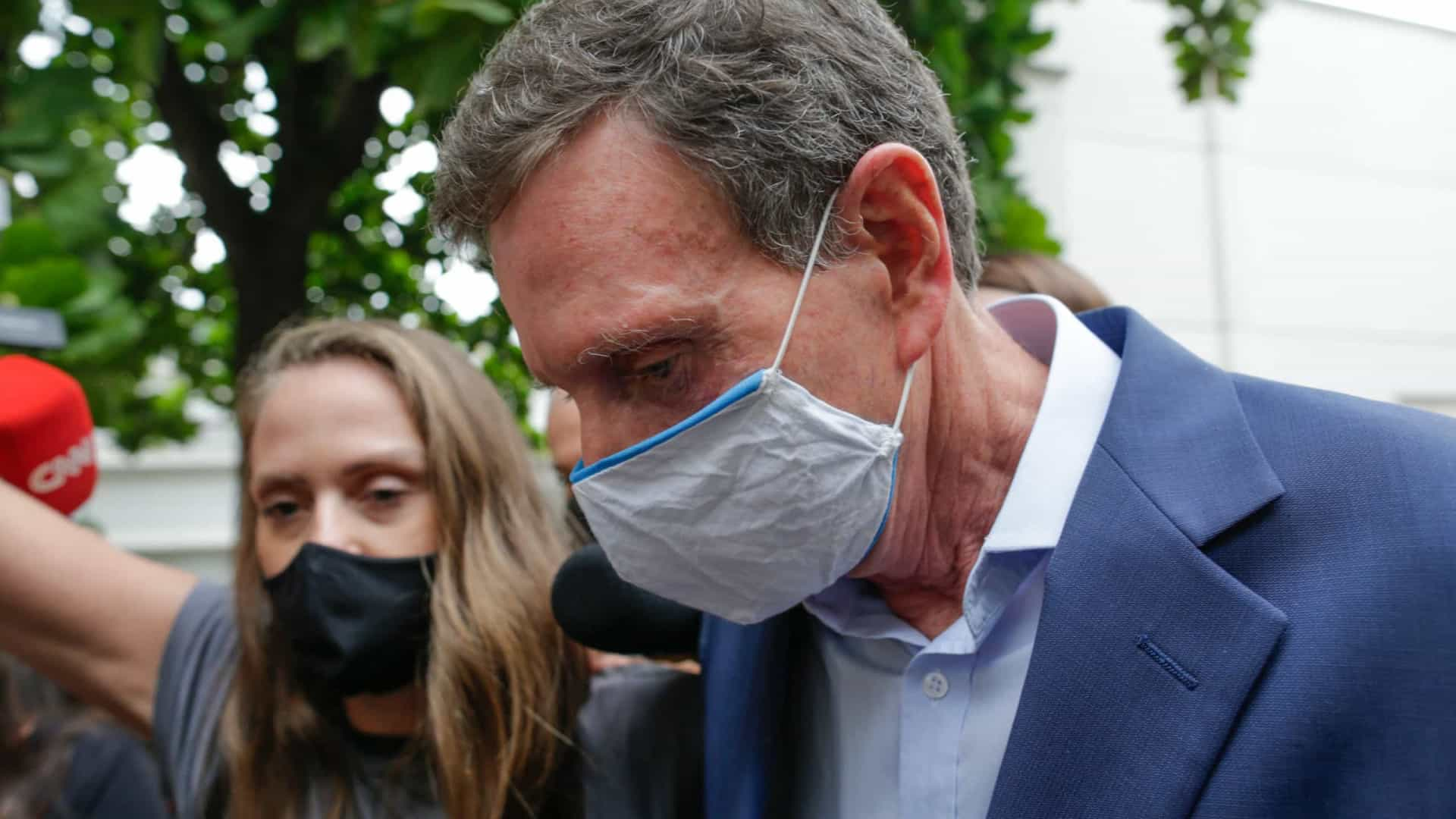RIO DE JANEIRO, BRAZIL – Federal Superior Court (STJ) Chief Judge Humberto Martins decided on Tuesday evening, December 22nd, to place Rio Mayor Marcelo Crivella under house arrest with an electronic anklet.
Nine days before leaving office, Crivella was arrested accused of leading the “Kickback HQ” installed in the Rio de Janeiro Executive branch.

“Although the case was based on evidence that in theory would justifiy pre-trial detention, I feel that the impossibility of adopting a less severe preventive measure was not recognized,” observed Martins.
Martins prohibited Crivella from having any contact with third parties, except close relatives, healthcare professionals and attorneys. The chief judge, who decides urgent cases during the end-of-year court recess, partially granted the Mayor’s writ of habeas corpus after his initial imprisonment.
According to the investigation, at least R$53 (US$10.3) million were raised under the scheme. In addition to Crivella, eight people were the target of pre-trial detention requests, including entrepreneur Rafael Alves, named as the operator of the scheme.
In all, the indictment affected 26 people under investigation. The crimes alleged include passive and active corruption, money laundering and criminal organization.
Ironically, during this year’s election campaign, when he lost to Eduardo Paes in the second round, Crivella said several times that the city should not elect his opponent because he would be arrested.
The Mayor clung to Bolsonario in an unsuccessful attempt to curb widespread rejection during the election period, appealing to moral issues. On Tuesday, President Jair Bolsonaro would not comment on his ally’s arrest.
According to the Prosecutor’s Office, the scheme was continuing even after two police operations that served search and seizure warrants at Crivella, Alves and other defendants’ addresses.
Two years ago, Rio de Janeiro politics had seen a similar situation with the arrest of Governor Luiz Fernando Pezão. About to leave office, Pezão was arrested at the Laranjeiras Palace. The Prosecutor’s Office at the time justified the arrest with the argument that the Governor was jeopardizing the investigations – he had provided a cell phone that was not his when he was the target of searches in September, for instance.
According to the Prosecutor’s Office representatives, the extent of the relevant material also favored the indictment at this time.
“We conducted an investigation that began in 2018, with two terabytes in size. Just think if we’d wait until January 1st and hand over the whole investigation to a first-degree prosecutor,” said deputy prosecutor-general Ricardo Martins, referring to the loss of jurisdiction.
“It would have been wrong to have put it off and left it to a colleague to handle an indictment like this on their own. There was no political bias in this case.”
In practice, the Prosecutor’s Office determined the timing of the operation based on the election period – when it would also be criticized had it arrested the Mayor and candidate – and the loss of jurisdiction, which would affect the entire authority over the case.
The September operation was instrumental in expediting the case and resulting in the Mayor’s arrest. One of the grounds for the pre-trial detention, according to appeals Judge Rosa Helena Penna Macedo Guita, is that Crivella handed over a cell phone that was not his to the officers who served a warrant in his home. The farce was detected by the Prosecutor’s Office after examining the device’s data. This was regarded as a means of trying to hinder investigations.
After this operation, four people mentioned in the investigation decided to seek the Prosecutor’s Office to cooperate in the investigations: João Alberto Felippo Barreto, Ricardo Siqueira Rodrigues, Carlos Eduardo Rocha Leão and João Carlos Gonçalves Regado. These depositions are considered key to supporting the initial suspicions raised by the Criminal Attribution Group (GAOCRIM), led by prosecutor Claucio Cardoso.
When arrested, Crivella said he was a victim of political persecution, but failed to explain who would be interested in his arrest. “I fought against illegal tolls, I pulled resources from Carnaval, I negotiated the VLT (Rio de Janeiro Light Rail), I was the government that most worked against corruption in Rio de Janeiro,” he claimed.
In addition to Crivella and Rafael Alves, ex-senator Eduardo Lopes, currently a fugitive, former Crivella Treasurer Mauro Macedo, retired deputy Fernando Moraes and others involved in the scheme were the targets of pre-trial detention requests. Among those indicted is also spin doctor Marcello Faulhaber – who worked in the Paes campaign in the last election.
Given the fact that Deputy Mayor Fernando MacDowell died during his term in office, the official who will take over City Hall until Paes is sworn in is City Councilman Jorge Felippe, a political veteran. At the age of 70 and heading toward his eighth term of office, Felippe will have as his priorities in this short period the payment of the 13th salary to municipal employees and the fight against Covid-19. Since he was notified of his interim mandate, Felippe has already met with 12 municipal Secretaries.

